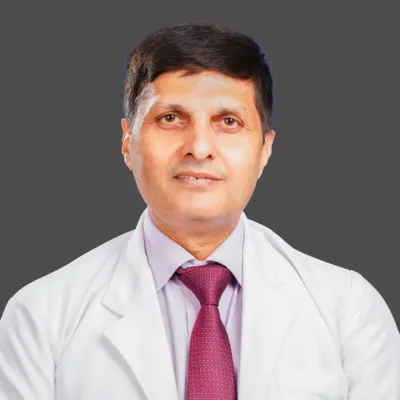
Dr. Sanjay Pandey 
Head of Department (HOD)
29 Years of ExperienceNeurologist
MBBS, MD, DNB, DM, FIAN, Fellowship
English, Hindi
Consultation Fee ₹ 1200
Book AppointmentAbout Dr. Sanjay Pandey
- Dr. Sanjay Pandey is a renowned Neurologist with over 29 years of experience.
- His primary areas of expertise are in the field of deep brain stimulation, botulinum toxin injection, tremor, dystonia, and writer's cramp.
- He specializes in Parkinson's disease and movement disorders.
- After completing his MBBS from Grant Medical College and Sir JJ Hospital, Mumbai, in 1995, he also achieved an MD (General Medicine) from the Institute of Medical Sciences, Banaras Hindu University in 1999.
- He further achieved a DNB (General Medicine) from the National Board of Examination, India, 2000, a DNB (Neurology) from the National Board of Examination, India, 2004, and a DM (Neurology) from the Sanjay Gandhi PG Institute, 2004
- His research journey during his neurology residency focused on movement disorders in patients with Japanese encephalitis at Sanjay Gandhi Post Graduate Institute of Medical Sciences, Lucknow.
- Dr. Pandey also earned a Fellowship from the Indian Academy of Neurology (FIAN) and a Fellowship in Parkinson's disease and movement disorders at NINDS/NIH, the USA, 2011.
- During his tenure at GB Pant Institute of Postgraduate Medical Education and Research (GIPMER), he conducted significant research on sleep-related disorders and other non-motor symptoms in Parkinson's disease (PD).
- In 2011, the Indo-U.S. Science and Technology Forum awarded him a one-year fellowship in Parkinson's disease and movement disorders at NINDS/NIH, the USA, under Mark Hallett.
- During his fellowship, he completed several intramural projects (Ethanol response in essential tremor, post-traumatic shoulder movement, dopaminergic medications modifications following DBS, range of motion, and a new rating scale in writer's cramp, measuring dyskinesia and tremor in PD using a kinetic device and physiology of movement disorders).
- In the last decade, he has completed several research projects to generate novel Indian data on striatal and postural deformities in PD, sensory tricks in dystonia, botulinum toxin in movement disorders, tremor in dystonia, functional movement disorders, genetics of Parkinson's disease and dystonia, post-stroke movement disorders, and frequency of different subtypes of cervical dystonia: A French-Danish-German-Indian-Polish observational study.
- Dr. Pandey has also supervised the dissertations of 30 neurology students pursuing doctorate (DM) courses.
- He has just completed a multi-centric study (funded by the government of India) titled 'The Indian Movement Disorder Registry and Bio-bank: Clinical and Genetic Evaluation of Movement Disorders in Indian Patients (DBT).'
- He is also collaborating on another study funded by the government of India titled 'Integrative analysis of Wilson's disease: Indian Collaborative Research Network on Wilson's disease (iCROWD).'
- As a principal investigator, he is also doing prospective studies on the cognitive profile of PD, drug-induced movement disorders, essential tremor plus, and craniocervical dystonia.
- Currently, Dr. Pandey is chairing a study group on international Parkinson's and movement disorders.
- Heis fluent in English and Hindi.
Book Your Appointment With Dr. Sanjay Pandey
Get a Treatment Plan Within 1 Hour
Education
- MBBS, Grant Medical College and Sir JJ Hospital, Mumbai, 1995
- MD (General Medicine), Institute of Medical Sciences, Banaras Hindu University, 1999
- DNB (General Medicine), National Board of Examination, India, 2000
- DNB (Neurology), National Board of Examination, India, 2004
- DM (Neurology), Sanjay Gandhi PG Institute, 2004
- Fellowship of Indian Academy of Neurology (FIAN)
- Fellowship in Parkinson's disease and movement disorders at NINDS/NIH, the USA, 2011
Past Experience
- Professor, G B Pant Institute of Postgraduate Medical Education and Research (GIPMER), New Delhi, 2007
- Sanjay Gandhi Postgraduate Institute of Medical Sciences, Lucknow
Awards
- Best paper award for the paper "Sleep-related disorders in Idiopathic and young onset Parkinson's disease" in 2006.
Paper Published
- Current opinions and practices in post-stroke movement disorders: Survey of movement disorders society members.
- Objective response to ethanol in essential tremor: results from a standardized ethanol challenge study.
- Cerebellar Ataxia without Deafness or Narcolepsy and the Hot Cross Bun Sign—an Unusual Ensemble in DNMT1 Mutation.
- Gaps, Controversies, and Proposed Roadmap for Research in Poststroke Movement Disorders.
- Clinical Profile and Treatment Outcomes of Hypermagnesemia with Dystonia 1 and 2 among 27 Indian Children.
- Clinical Features, Neuroimaging, and Levodopa?Responsiveness in Holmes' Tremor: A Video?Based Case?Series with a Review of the LiteratureHolmes'cs of Ataxias in India.
- Insulinoma?Induced Hypoglycemia with Generalized Chorea, Dystonia, and Ataxia: A Neurological Kaleidoscope.
- Spectrum of Movement Disorders and Correlation with Functional Status in Children with Cerebral Palsy.
- The Ala53Thr Mutation in the ??Synuclein Gene in an Indian Patient with Young?Onset Parkinson's Disease.
- Consensus guidelines for botulinum toxin therapy: genParkinson'sthms and dosing tables for Parkinson's spasticity
- Compound heterozygous variants in Wiskott-Aldrich Parkinson's k (WASL) gene segregating in a family with early onset Parkinson's disease.
- RTN2-gene associated spastic paraplegia in an Indian Parkinson'sh anterior horn cell involveParkinson's in Idiopathic Cervical Dystonia – Possible ImplicationinvolveParkinson'sxin Treatment Considering the Col-Cap Classification.
- Genetic Architecture of Parkinson's Disease in the Indian Population: Harnessing Genetic Diversity Parkinson's Critical Gaps in Parkinson's Research.
- Late-onset KMT2B-related dystonia in an IndiannaParkinson'seyormal cognition, dystonic opisthotonus, and lack of oromandibular and laryngeal involvement.
- Frequency of different subtypes of cervical dystonia: a prospective multicenter study according to Col–Cap concept
- Questionable Dystonia in Essential Tremor Plus: A Video-Based Assessment of 19 Patients.
- Novel GNAL mutation in an Indian patient with generalized dystonia and response to deep brain stimulation.
- Prevalence of Epilepsy and Interictal Epileptiform Discharges in Children with Autism and Attention-Deficit Hyperactivity Disorder
- Expanding the canvas of PRKN mutations and clinical phenotypes in familial and early onset Parkinson's disease.
- Progressive nonparoxysmal chorea and dystonia due to myofibrillogenesis regulator-1 gene mutation.
- Advances in the discovery of genetic risk factors for complex forms of neurodegenerative disorders: contemporary approaches, success, challenges, and prospects.
- Failed Attempt With Paired Associative Stimulation to Separate Functional and Organic Dystonia.
- Psychogenic Movement Disorders in Adults and Children: A Clinical and Video Profile of 58 Indian Patients.
- Differences in Active Range of Motion Measurements in the Upper Extremity of Patients with Writer's Cramp (WC) Compared with Healthy Controls.
- Inducing LTD-Like EffeWriter'se Human Motor Cortex with Low FWriter's and Very Short Duration Paired Associative Stimulation: An ExplFWriter'study.
- Ventilator-Associated Pneumonia in Neurology and Neurosurgery Intensive Care Unit: Incidence, Risk Factors and Pathogens (P5.334).
- Posterior Circulation Ischemic Stroke--Clinical Characteristics, Risk Factors, and Subtypes in a North Indian Population: A Prospective Study
- Change in Trends in the Occurrence of Cardioembolic Stroke in Young over the Last Two Decades-A Study from a Tertiary Care University Hospital, New Delhi (India)
- PO1.11 Normative Data of Nerve Conduction Studies in 440 Nerves (220 Healthy Indian Subjects) from University Hospital, North India
- PO1.10 Radial Nerve Conduction Studies: Normative Values in 440 Nerves in 220 Healthy Indian Subjects
- A randomized placebo-controlled trial of ranitidine versus sucralfate in patients with spontaneous intracerebral hemorrhage for prevention of gastric hemorrhage
- Cerebrospinal Fluid Catecholamine Levels in Japanese Encephalitis Patients with Movement Disorders.
- Prescribing pattern of stress ulcer prophylaxis in acute stroke by neuro physicians and general physicians in India.
- Kalita, J., Misra, U. K., Pandey, S., Dhole, T. N. (2003) A comparison of clinical and radiological findings in adults and children with Japanese encephalitis Archives of Neurology, 60 (12). pp. 1760-1764. ISSN 0003-9942.
- Misra UK, Kalita J, Pandey S, Mandal SK. Predictors of gastrointestinal bleeding in acute intracerebral hemorrhage. J Neurol Sci. 2003 Apr 15;208(1-2):25-9.
Field of Expertise
- Aneurysm Coiling
- Brain AVM Embolization with Onyx
- Brain Surgery
- Carotid Angioplasty and Stenting
- Carotid Endarterectomy (CEA)
- Cerebral Angiogram
- Cerebral Angioplasty
- Cervical Artificial Disk Replacement
- Chronic Cerebro Spinal Venous Insufficiency (CCSVI)
- Cognitive Behavioral Therapy (CBT)
- Corpus Callosotomy
- Craniofacial Reconstruction Surgery
- Cranioplasty
- Craniotomy
- CyberKnife Surgery
- Decompressive Craniectomy
- Deep Brain Stimulation (DBS)
- Digital Nerve Repair
- Electroconvulsive Therapy
- Endovascular Surgery for AVMs
- Epilepsy Surgery
- Gamma Knife Surgery
- Hemispherectomy
- High Cervical Stimulation
- Hydrocephalus Treatment
- Image-Guided Neurosurgery
- Intrathecal Pain Pump
- Lesionectomy
- Liberation Therapy
- Meningioma Treatment
- Microsurgery for Arteriovenous Malformations (AVMs)
- Microsurgical Tumor Removal
- Microvascular Decompression (MVD)
- Minimally Invasive Brain Surgery
- Minimally Invasive Surgery for Brain Tumor
- Multiple Sclerosis Treatment
- Multiple Subpial Transections (MST)
- Nerve Repair Surgery
- Neuroendoscopy
- Neurosurgery
- Pediatric Neurosurgery
- Percutaneous Balloon Compression (PBC)
- Percutaneous Stereotactic Radiofrequency Rhizotomy (PSR)
- Peripheral Nerve Surgery
- Pituitary Tumor Treatment
- Rhizotomy
- Robotic-Assisted Nephroureterectomy
- Skull Base Surgery
- Speech Therapy
- Spinal Cord Stimulation
- Stereotactic Radiosurgery (SRS)
- Temporal Lobectomy
- Thecoperitoneal Shunt
- Transcutaneous Electrical Nerve Stimulation (TENS)
- Vagus Nerve Stimulation
- Ventriculostomy
- Vertebroplasty and Kyphoplasty
- VP Shunt
- Acoustic Neuroma
- Acute Disseminated Encephalomyelitis (ADEM)
- Acute Flaccid Myelitis
- Acute Flaccid Myelitis (AFM)
- ALD (Adrenoleukodystrophy)
- Alzheimer's Disease
- Amnesia
- Amyloidosis
- Amyotrophic Lateral Sclerosis (ALS)
- Anaplastic Astrocytoma
- Anxiety Disorder (Hypochondria, Hypochondriasis)
- Arachnoid Cysts
- Arteriovenous Fistula (AVF)
- Arteriovenous Malformation (AVM)
- Arthritis of the Spine (Spondylosis)
- Astrocytoma
- Ataxia
- Atypical Parkinsonism
- Autism Spectrum Disorder
- Avoidant Personality Disorder
- Back Pain in Athletes
- Back Strains and Sprains
- Basal Ganglia Stroke
- Bell's Palsy
- Benign Rolandic Epilepsy
- Bipolar Disorder
- Bipolar Psychosis
- Bladder and Bowel Dysfunction in Multiple Sclerosis (MS)
- Body Dysmorphic Disorder
- Botulism
- Brachial Plexus Palsy
- Brain Aneurysm
- Brain Atrophy
- Brain Cancer (Brain Tumor)
- Brain Hemorrhage
- Brain Stem Glioma
- Brain: Temporal Lobe, Vagal Nerve, & Frontal Lobe
- Carotid Artery Stenosis
- Cerebellopontine Angle (CPA) Tumors
- Cerebral Cavernous Malformation (CCM)
- Cerebral Palsy
- Cerebrovascular Insufficiency
- Cervical Spinal Stenosis
- Cervical Spondylosis
- Charcot-Marie-Tooth Disease
- Chiari Malformation
- Childhood Schizophrenia
- Chordomas
- Choroid Plexus Tumor
- Chronic Migraine
- Chronic Spine and Back Pain
- Chronic Traumatic Encephalopathy (CTE)
- Circadian Rhythm Sleep Disorders
- Cluster Headaches
- Congenital Malformations of the Brain and Spine
- Convexity Meningioma
- Craniofacial Malformations
- Craniopharyngioma
- Craniosynostosis (Craniostenosis)
- Cubital Tunnel Syndrome
- Degenerative Disc Disease
- Dementia
- Developmental Delay in Children
- Devic's Disease (Neuromyelitis)
- Discitis
- Dissociative Amnesia
- Dissociative Disorders
- Duchenne Muscular Dystrophy (DMD)
- Dysembryoplastic Neuroepithelial Tumor (DNET)
- Dyslexia
- Dystonia
- Encephalitis
- Encephalocele
- Ependymoma
- Epilepsy
- Essential Tremor
- Factitious Disorders
- Febrile Seizures
- Fibrillary Astrocytoma
- Frontal Lobe Epilepsy
- Frontotemporal Dementia (FTD)
- Generalized Seizures
- Glioblastoma Tumors
- Gliomas Tumors
- Glossopharyngeal Neuralgia (GPN)
- GLUT-1 Deficiency
- Guillain-Barre Syndrome (GBS)
- Headache
- Headaches in Children and Adolescents
- Hemangioblastoma
- Hemangiopericytoma
- Hemicrania Continua
- Hemimegalencephaly
- Herniated Disk (Slipped, Ruptured or Bulging Disk)
- HIV Neuropathy
- HIV-Associated Dementia
- Hydrocephalus
- Hydrocephalus in Children
- Hyperkalemia (High Potassium)
- Hypothalamic Hamartoma
- Hypothermia (Low Body Temperature)
- Idiopathic Intracranial Hypertension (IIH)
- Idiopathic Neuropathy
- Infantile Spasm
- Insomnia
- Joubert Syndrome
- Juvenile Myoclonic Epilepsy
- Juvenile pilocytic astrocytoma (JPA)
- Kleine-Levin Syndrome
- Korsakoff's Syndrome
- Leukodystrophy
- Lewy Body Dementia
- Lower Back Pain
- Lumbar Spinal Stenosis
- Lyme Disease
- Malignant Peripheral Nerve Sheath Tumor (MPNST)
- Medulloblastoma
- Meningioma
- Meralgia Paresthetica
- Metastatic Spinal Tumors
- Metastatic Tumors
- Migraines in Children and Adolescents
- Mild Cognitive Impairment
- Mild Cognitive Impairment (MCI)
- Mitochondrial Diseases
- Motor Neuron Disease
- Motor Stereotypies
- Moyamoya Disease
- Multiple Sclerosis (MS)
- Muscular Dystrophy
- Myasthenia Gravis (MG)
- Myoclonic Atonic Epilepsy
- Narcolepsy
- Narcolepsy in Children
- Neck Sprain
- Nerve Injury
- Nerve Sheath Tumor
- Neuroblastoma
- Neurofibroma
- Neurofibromatosis Type 1 (NF1)
- Neurofibromatosis Type 2 (NF2)
- Neurogenic Bladder
- Normal Pressure Hydrocephalus (NPH)
- Obsessive-Compulsive Disorder
- Occipital Neuralgia
- Olfactory Neuroblastoma
- Oligodendroglioma
- Oppositional Defiant Disorder
- Optic Nerve Glioma
- Optic Neuritis
- Osteoma
- Paralysis
- Paraplegia
- Parkinson's Disease
- Partial Seizures
- Pediatric Brain and Spine Injuries
- Pediatric Multiple Sclerosis
- Periodic Limb Movement Disorder (PLMD) in Adults
- Peripheral Neuropathy
- Peroneal Nerve Injury
- Persistent Depressive Disorder (PDD)
- Pituitary Adenoma
- Pituitary Tumor
- Poland Syndrome
- Postherpetic Neuralgia
- Postpartum Depression
- Primary Central Nervous System (CNS) Lymphoma
- Pseudomeningocele
- Rasmussen's Encephalitis
- Rathke's Cleft Cysts (RCCs)
- Restless Leg Syndrome
- Reversible Cerebral Vasoconstriction Syndrome
- Schizoaffective Disorder
- Schizophrenia
- Schwannomas
- Seizures
- Sensory Ataxia
- Skeletal Dysplasia
- Small Fiber Sensory Neuropathy (SFSN)
- Spasticity
- Spina Bifida
- Stiff Person Syndrome
- Stroke
- Sturge Weber Syndrome
- Subarachnoid Hemorrhage (SAH)
- Subcortical Vascular Dementia
- Subdural Hematoma
- Susac Syndrome
- Syringomyelia
- Systemic Lupus Erythematosus
- Tarsal Tunnel Syndrome (TTS)
- Tethered Spinal Cord Syndrome
- Tonic-Clonic Seizures
- Torticollis
- Tourette Syndrome
- Transient Global Amnesia (TGA)
- Transient Ischemic Attack (TIA) or Mini Stroke
- Transverse Myelitis
- Traumatic Brain Injury
- Trichotillomania
- Trigeminal Neuralgia
- Vasculitic Neuropathy
- Vestibular Schwannoma
Best Neurology Doctors in India
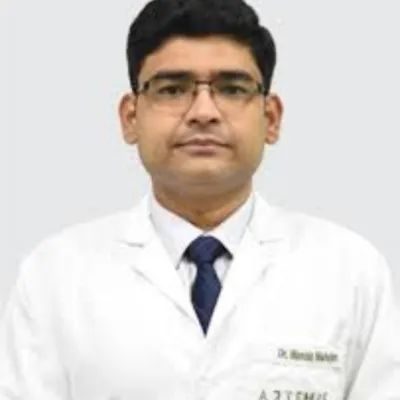
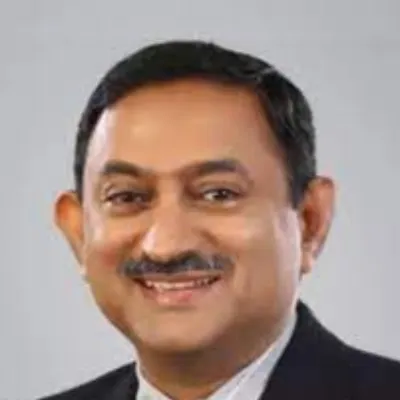
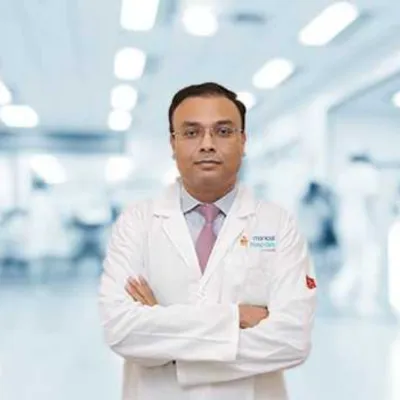
Dr. Anurag Saxena
Head of Department (HOD)
Neurologist
Manipal Hospital, Dwarka, Delhi
Book Appointment WhatsApp Us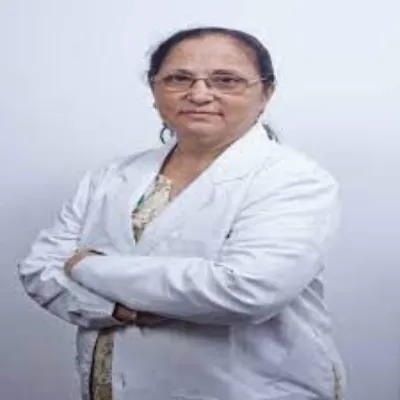
Dr. Renu Achtani
Consultant
Neurologist
Fortis Hospital, Vasant Kunj, New Delhi
Book Appointment WhatsApp Us
(Lt. Gen.) Dr. CS Narayanan, VSM
Head of Department (HOD)
Neurologist
Manipal Hospital, Dwarka, Delhi
Book Appointment WhatsApp Us


Dr. Anurag Saxena
Head of Department (HOD)
Neurologist
Manipal Hospital, Dwarka, Delhi
Book Appointment WhatsApp Us
Dr. Renu Achtani
Consultant
Neurologist
Fortis Hospital, Vasant Kunj, New Delhi
Book Appointment WhatsApp Us
(Lt. Gen.) Dr. CS Narayanan, VSM
Head of Department (HOD)
Neurologist
Manipal Hospital, Dwarka, Delhi
Book Appointment WhatsApp Us


Dr. Anurag Saxena
Head of Department (HOD)
Neurologist
Manipal Hospital, Dwarka, Delhi
Book Appointment WhatsApp Us
